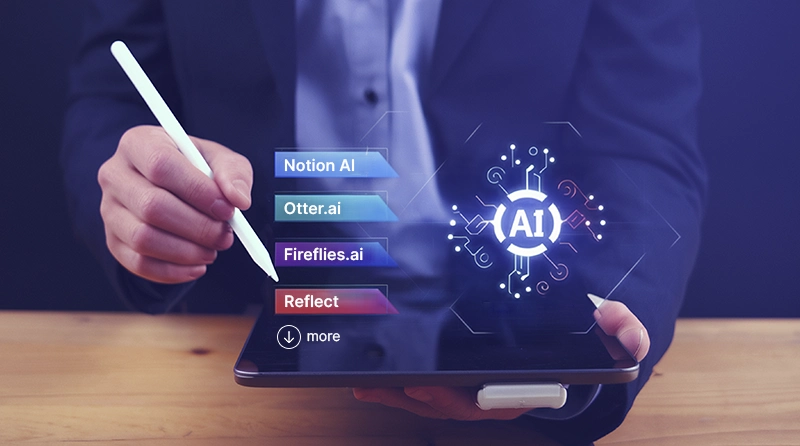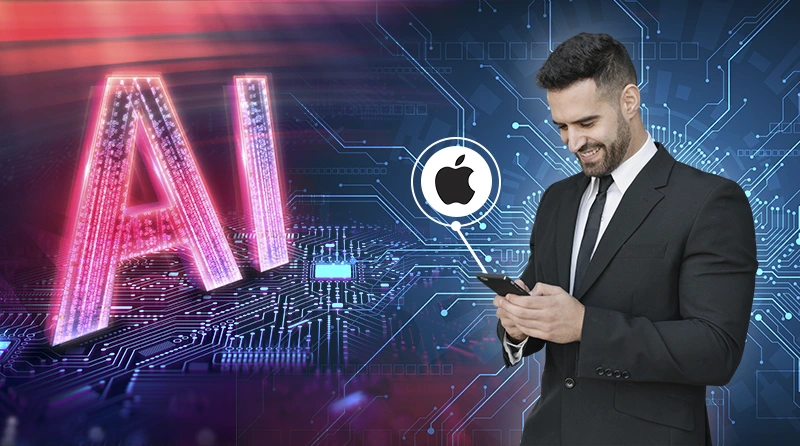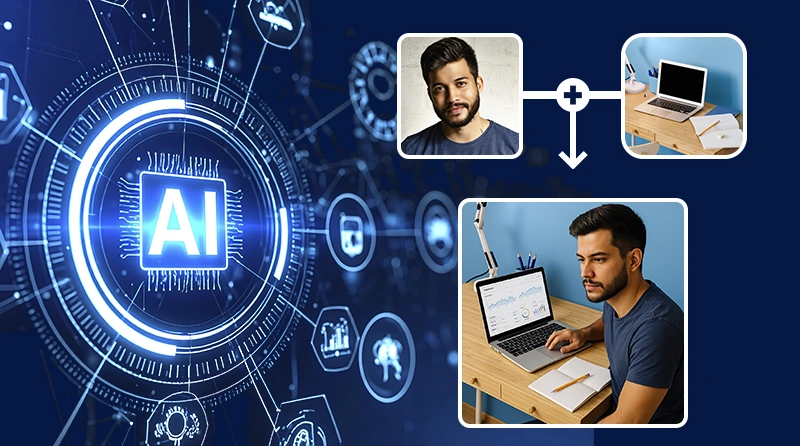10 Best AI Note-Taking Apps [ 2025 Note Taker Tools]

What if every meeting, class, or brainstorming session automatically made structured, searchable notes? You could dedicatedly focus on the conversation. Sounds like the future? No, it’s not. Welcome to the world of AI note-taking apps to take notes with AI.
Manual note-taking has become a problem in the fast-paced digital age. A recent report says that professionals in the U.S. spend an average of 11.3 hours a week in meetings. But a lot of these interactions aren’t well documented. This has caused missed insights, repeated discussions, and longer decision-making times.
If businesses continue sticking only to tools like Google Docs, Apple Notes, or basic notes apps, they could fall behind those using advanced apps. The race to use AI-powered solutions around the world is getting more intense, and companies that don’t keep up could lose customers and trust.
So, what is the best AI note-taking app for 2025? Let’s look at the best apps that are changing how we take notes, beginning with clearing the air around an app for note-taking.
What Is a Note-Taking App?
A note-taking app is an advanced way for people to quickly and easily record their thoughts and ideas. With the conventional apps in which you can take notes, you type text notes, add pictures, and sort the notes in folders or categories. As technology changes rapidly, there are now AI-powered apps that perform more roles than just storing text only.
By employing AI in modern apps for note taking, you can easily dictate notes, and long texts are summarized, the key points identified, and sometimes even the notes processed further. Such innovative instruments can work with audio tracks and transcribe everything discussed in your meetings or discussions so as to create a meeting summary without your assistance.
Moreover, AI-powered virtual assistant tools function in the back end to harvest and arrange information, contrary to manual note-taking, which requires vigilance and effort.
Pro Tip: Choose the best AI note-taking tools that not only help you maintain your own writing style but also have a brainy assistant.
The transition from manual note-taking to AI-based solutions is a milestone in how professionals handle information. Those tools don’t only keep data, but they can also make it useful and easy to access whenever required.
List of Top 10 AI Note-Taking Apps
| AI Note-Taking App | Free Version | Paid Plans | Key Features of the Software | Best For |
|---|---|---|---|---|
| Notion AI | Yes (Limited AI) | $8–16/month | AI-generated summaries, project management, collaboration tools | Teams and individuals |
| Otter.ai | Yes (600 min/month) | $10–20/month | Meeting notes, AI meeting assistant, integrates with Google Meet | Meeting recaps |
| Fireflies.ai | Yes (800 min/month) | $10–19/month | AI meeting notes, conversation intelligence, end-to-end encryption | Sales teams |
| Reflect | Free plan available | $10/month | AI note generator, note linking, personal knowledge map | Users at an individual level |
| Roam Research | No | $15/month | AI features, networked thought, structured notes | Researchers |
| Obsidian | Yes | $4–8/month | AI assistant plugins, community support, local storage | Knowledge workers |
| Mem | Free AI note-taker | $15/month | AI-powered organization, smart search, key insights | Busy professionals |
| Logseq | Yes (Open source) | Free | AI note, privacy-focused, Apple Notes alternative | Users who are privacy-conscious |
| RemNote | Free version | $8/month | AI-powered features, spaced repetition, and learning workflows. | Students and educators |
| Craft | Free plan | $7.99/month | AI editing, beautiful design, structured notes | Creative professionals |
Suppose you could use any of these AI note-taking apps during your next vital meeting. Efficiency and outcomes would then skyrocket.
10 Best Note Taker Tools (in Detail)
Next is a detailed mini-review of the best AI apps to create notes so you can choose the one that ticks all the right boxes in terms of your requirements.
1. Notion AI: The Complete Workspace Solution

Notion AI is among the most complete AI note-taking solutions since it combines regular note-taking with project management tools. This AI assistant can be a transformative step in the way you collaborate and handle information within teams.
Key Features
- AI-generated summaries from lengthy documents and meetings
- Smart content suggestions that adapt to your writing style
- Seamless integration with databases and collaboration features
- Meeting summaries are generated automatically from uploaded audio files
Pros
- All-in-one workspace combining note-taking with task management
- Excellent collaboration features for team environments
- Flexible database integration for structured notes
- Strong AI-powered content generation capabilities
- Extensive template library for various use cases
Cons
- A steep learning curve for new users
- Paid plans can be expensive for large teams
- AI features are limited in the free version
- Can become overwhelming with too many features
- Performance issues with large databases
Use Case
Marketing teams deploy Notion AI to organize the information discussed during team meetings into specific campaign plans, and AI is able to pull out keywords for assigning actionable tasks automatically.
Pro Tip: You can use Notion AI software to convert those messy notes from the meeting into logical timelines of the project with assigned responsibilities.
2. Otter.ai: The Meeting Intelligence Expert

Otter.ai specializes in meeting notes and is the best AI meeting assistant for businesses. With its capacity to transcribe more than one conversation at a time, it’s unbelievably accurate.
Key Features
- Real-time transcription during Google Meet, Zoom, and Microsoft Teams calls
- AI meeting notes with automatic speaker identification and timestamps
- Meeting recaps with action items and key insights
- Otter.ai chat functionality for querying past conversations
- Integration capabilities for upcoming meetings and calendar synchronization
Pros
- Exceptionally accurate transcriptions
- Seamlessly integrates with popular video conferencing platforms
- Real-time collaboration features during meetings
- Excellent meeting summaries with actionable insights
Cons
- Background noise can affect the quality of transcriptions
- Usage limitations in the free plan
- Inaccurate speaker identification
- Limited customization options for structuring notes
Use Case
Consulting firms maintain verbatim records of their client conversations so that key information is not lost during the discussion of complex projects.
3. Fireflies.ai: The Pioneer of Conversation Intelligence

Fireflies.ai adapts meeting notes into BI (Business Intelligence), providing more advanced AI-powered summaries and analysis rather than mere transcriptions.
Key Features
- AI-generated notes with emotion analysis and conversation insights
- End-to-end encryption ensures the security of sensitive discussions
- Multiple meetings analysis for trending topics and team performance
- Advanced search through audio files and conversation history
- CRM integration for sales teams and internal meetings tracking
Pros
- AI-powered trend analysis across various meetings
- Comprehensive search functionality through conversation history
Cons
- Priced on the higher end than basic transcription tools
- The complex interface may seem overwhelming to casual users
- Heavily focused on sales/business contexts
- The free version has limited features
- Requires training required for effective utilization of advanced features
Use Case
Sales organizations turn to Fireflies.ai in order to exploit the power of AI for analyzing customer discussions, spotting buying clues along the way, and further increasing deal conclusion rates with AI-powered insights.
Pro Tip: You could use Fireflies’ topic tracking feature to quickly pick up customer issues that have come up in your previous meeting with the same customers.
4. Reflect: The Personal Knowledge Assistant

Focusing on the enhancement of individual productivity, Reflect provides an AI note-generator tool that aids users in constructing a fully integrated personal knowledge system.
Key Features
- AI note generator with the ability to create content from brief prompts
- Link notes functionality that allows you to build interconnected knowledge graphs
- Apple Notes style simplicity, along with intelligent features
- Background noise filtering while converting voice to text
- Free plan with essential AI-powered note-taking features
Pros
- Intuitive interface that resembles Apple Notes
- Powerful AI note generator to create content
- Excellent link notes system for knowledge building
- Strong privacy focus with options for local storage
Cons
- Limited team collaboration features
- The user community is small compared to major platforms
- AI features are not fully developed compared to established tools
- Limited options for integration with third-party tools
Use Case
Independent consultants rely on Reflect to keep the information of their clients updated, and then AI-generated insights assist them in preparing well for meetings and proposals.
5. Roam Research: The Networked Thought Platform

Roam Research changes the perspective on note-taking by making it a network of interconnected ideas to which you will have an AI assistant prompt if one idea reminds you of another.
Key Features
- Structured notes with automatic linking of related concepts
- AI features that help you with content discovery and suggest connections
- Bidirectional linking system capable of creating knowledge webs
- Advanced features for performing research and academic functions
- Block-level references to help you with granular information management
Pros
- Bidirectional linking system
- A strong community of power users and researchers
- Flexible AI-powered block-based notes structured approach
Cons
- Complex interface with a steep learning curve
- The mobile app has limited functionality
- Users may find it overwhelming for simple note-taking needs
- Priced on the higher side for individual users
Use Case
Researchers use Roam for the purpose of compiling thorough literature reviews with AI assistance to find connections among unrelated research findings.
Think about it, what if you have a research assistant who does the job of automatically recalling your past discoveries just as you type your yesterday notes– that is how powerful Roam’s AI-powered technique can be.
6. Obsidian: The Knowledge Vault Built by the Community

Obsidian combines the features of powerful note-taking apps with a lively plugin community that includes AI assistants and other tools.
Key Features
- AI assistant plugins for making and summarizing content
- Graph view for seeing how structured notes are related to each other
- A community of note-takers with thousands of plugins to choose from
- Local storage with options for end-to-end encryption
- An interface that can be changed to fit any writing style
Pros
- A free version that works perfectly well
- A huge collection of plugins that add AI features
- Local storage keeps all your data private
- Customizable interface and workflows to fit your needs
- Community support for note-takers
Cons
- Needs technical know-how to set up correctly
- AI features depend on plugins from third-party
- Can be too much for people who aren’t tech-savvy
- Setting up collaboration features takes more time
- Limited features in the mobile app than the desktop version
Use Case
Academia uses Obsidian for systematic literature reviews, where AI can help you find research gaps and summarize papers.
7. Mem: The Intelligent Memory Assistant

Mem is a free AI note-taker that functions as an AI-powered organization system. It learns from how users use it to bring up relevant information.
Key Features
- AI-powered organization to automatically sort and tag content
- A smart search function that knows what you’re looking for and why
- Extracts key insights from personal note collections
- Works with Google Docs and other popular productivity tools
- Generates meeting summaries from uploaded recordings
Pros
- Smart AI-powered organization learns from how people use it
- A great search function that understands the context
- Simple, clean interface that focuses on content
- Works well with productivity tools
- Availability of a free AI note-taker tier
Cons
- Not many collaboration features for teams to work together
- AI learning needs considerable usage time
- Fewer features than full-featured platforms
- Advanced features require paid plans
- Power users have few options for customizing things
Use Case
Mem is used by high-level managers to keep track of strategic conversations in detail so that AI can give them helpful tips on how to get through problems that come up during current planning sessions.
Pro Tip: Let Mem pick up your habits for two to three weeks so you can fully appreciate all of its AI-powered organizational features.
8. Logseq: The Privacy-First Choice

Logseq adds AI note-taking features while keeping all user data private via local storage and open-source designs.
Key Features
- AI note processing that happens on your own computer for the best privacy
- Block-based notes structured approach resembling Roam Research
- Apple Notes import features to make migration easy
- Plugin ecosystem for adding more AI features
Pros
- Local storage and open-source code give you full privacy
- The free plan has all the features without any limits
- The block-based method is great for taking structured notes
- Git-based integration for technical users
Cons
- Not many built-in AI features
- For advanced setup, you need to know how to use technology
- Not as many people use it as established platforms
- You have to set up collaboration features manually
- The features of mobile apps are still being worked on
Use Case
Lawyers who keep private case notes use Logseq. It is helpful to get AI organizations that are completely data private.
9. RemNote: The Platform for Learning

RemNote mixes AI-powered features with SRL (spaced repetition learning) to make a useful hybrid for both learning and professional growth.
Key Features
- AI-powered features for making quizzes and summarizing content
- System of spaced repetition for keeping knowledge
- The notes app works best for learning workflows
- Organizing notes in a hierarchy with connections suggested by AI
- Students can get a free version with a lot of AI features
Pros
- A one-of-a-kind mix of spaced repetition learning and note-taking
- Great AI-powered features for educational content
- The free version has a lot of useful features for students
- Hierarchical organization is great for structured notes
- A strong focus on learning and keeping knowledge
Cons
- The interface can be challenging for occasional note-takers
- Not very appealing outside of educational settings
- Collaboration features aren’t as strong as tools for businesses
- The learning curve for spaced repetition features
- Paid plans are needed for advanced organizational features
Use Case
Medical students use RemNote to turn their lecture notes into study materials, and AI creates practice questions and schedules to help them remember what they learned.
10. Craft: The Design-Conscious Choice

Craft focuses on beautiful design with modern technology that highlights powerful AI editing and organizing and appeals to creative professionals.
Key Features
- AI editing suggestions to make your writing clearer and easier to read
- A beautiful, distraction-free interface that changes to fit your writing style
- Notes structured approach, allowing you to format your notes in different ways
- Native apps for all devices can sync across platforms
- Free plan with essential AI assistance features
Pros
- The design is beautiful and easy to use, and it works well for users
- Strong AI editing features for improving content
- Great syncing across platforms
- The free plan has all the basic features
- Great for writers and other creative people
Cons
- AI features are not as good as those of specialized tools
- Collaboration features aren’t as strong as those on team-focused platforms
- Fewer plugins in the ecosystem
- Paid plans are needed for more advanced organizational features
- Not as good for complicated project management
Use Case
Writers use Craft to come up with ideas for articles, with AI refining their concepts and bringing structural improvements.
Craft is different from other AI note-takers because it has a lot of aesthetic appeal and AI-powered functionality. This is especially useful for creative professionals who need to keep a good balance between form and function.
Conclusion
There have been a lot of changes in the world of AI note-taking, which has made it easier to keep track of things and get more done. The best AI note-taking app for you will depend on what you need. Do you need meeting notes, collaboration features for working together, project management integration, or AI-powered organization? These apps fulfill all your requirements.
Companies that use these AI note-taking tools now will have an edge over their competitors for a long time. Professionals can now automatically write meeting summaries, take notes on key points, and pull out key insights from conversations. This is a big change in how they handle information.
There is an AI helper for every type of work. Some, like Logseq and Obsidian, are free AI note-taker tools, while others, like Notion AI and Otter.ai, have all the features you need. We used to just write down words when we took notes, but now we process information in a smart way that helps us make decisions and work together.
Pro Tip: Try out the free versions first to see what you need. Then, pay for the plans that have the extra features that will help you the most.
The future will belong to the companies that use AI-powered note-taking to turn messy data into useful, organized knowledge. The right AI note-taker tools can change the way you work if you run meetings, do research, or manage teams from different countries.
Don’t let your business get left behind in this AI-powered revolution. The best AI note-taking app is here to help you beat the competition by changing the way you collect, organize, and use information.
FAQs
Q1. What makes an AI note-taking app different from traditional note-taking apps?
AI-powered note-taking applications transcribe speech automatically, identify the key points, create meeting summaries, and arrange content cleverly. These do not work like the traditional note-taking apps that you know of, as this does not involve typing nor writing notes but processes audio files and filters background noise to capture structured notes automatically.
Q2: Are there reliable free AI note-taker options available?
Yes, there are a lot of free AI note-taker apps like Otter.ai (600 minutes monthly), Notion AI (limited number of features), Logseq (open source), and Obsidian. As for the free versions, they offer quite much of tools to be used by individual users and small teams.
Q3: Are AI meeting notes accurate as compared to manual note-taking?
The best AI note-taking app solutions can achieve 95%+ accuracy in transcription if it is done properly. The AI meeting notes provide you with full conversation details, which often escape manual note-taking, especially during multitasking or complex discussions with background noise.
Q4: Is the integration of AI note-taking tools with existing productivity systems possible?
Most of these AI note-taking tools were designed to work with various Google applications, the majority of project management software, online calendars, and appointment books as well as team communication software such as Google Meet. This connection makes it possible for your note-taking app to be integrated into your productivity ‘world’ even more deeply.
Q5: What security measures do AI note-taking apps implement?
The advanced AI note-taking apps boast end-to-end encryption protection, well-secured cloud storage, and detailed permissions control. Tools like Fireflies.ai and Notion AI come with enterprise-grade security, so they can be used for internal meetings or discussing sensitive business information.
Q6: How do AI features enhance collaboration in team environments?
AI-powered tools come with instant collaboration features, real-time sharing of the minutes of meetings, notes sharing, and content assistance over the internet. Moreover, AI summaries are a big advantage for teams working across the world since they guarantee shared understanding in an international context.
Q7: Does it take a long time to learn how to use AI tools for note-taking?
Most AI note-taker apps have a short learning curve. With these apps, users can do note-taking proficiently in just a few days, whereas the advanced features may take a couple of weeks to get used to. The best AI note-taking apps prioritize user-friendly interfaces that can adjust themselves to the user’s current writing style.
Q8: Can AI-note-taking apps handle technical jargon and terminology specific to an industry?
AI note-taking tools are gradually getting more advanced in terminology due to machine learning. Most of them allow for custom dictionaries devoted to industry terms to guarantee an accurate transcription of technical discussions and meeting notes within a specific field.
Q9: What is the difference between premium and free note-taking AI software?
Most paid plans offer transcriptions that are unlimited regarding the time duration, more advanced features as well as collaboration features, priority support, and AI-powered analytics. Monthly usage caps and limited access to premium AI features are often what limit free users.
Q10: What are the factors that businesses should take into consideration while selecting an AI note-taking solution?
Evaluate the transcription accuracy, collaboration features, integration capabilities, security measures, scalability, and AI-powered organization features. Also, consider the meeting assistant functionality, project management integration, or specialized features depending on your industry requirements.





